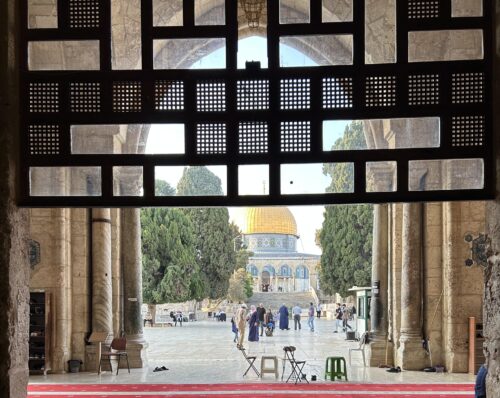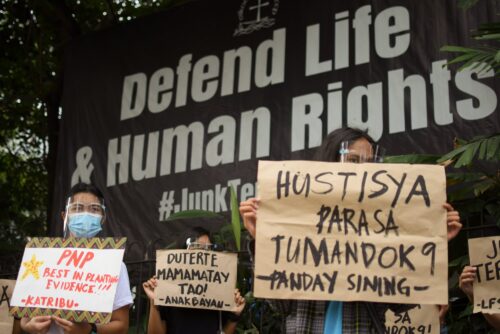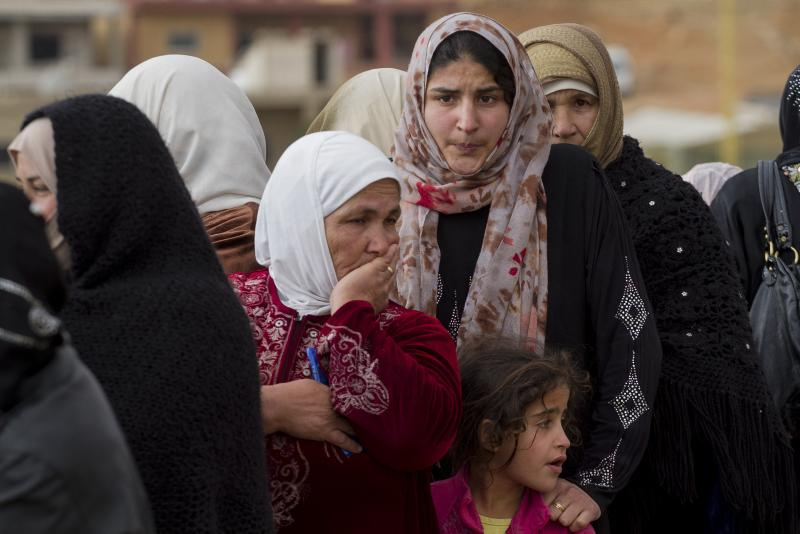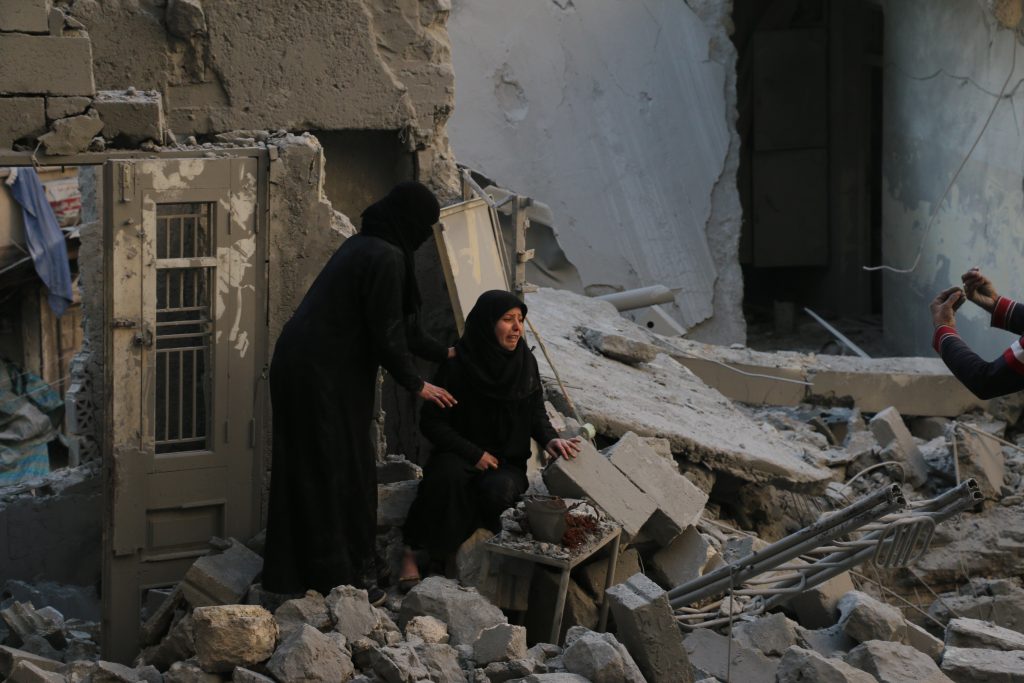European Brides in the Islamic State
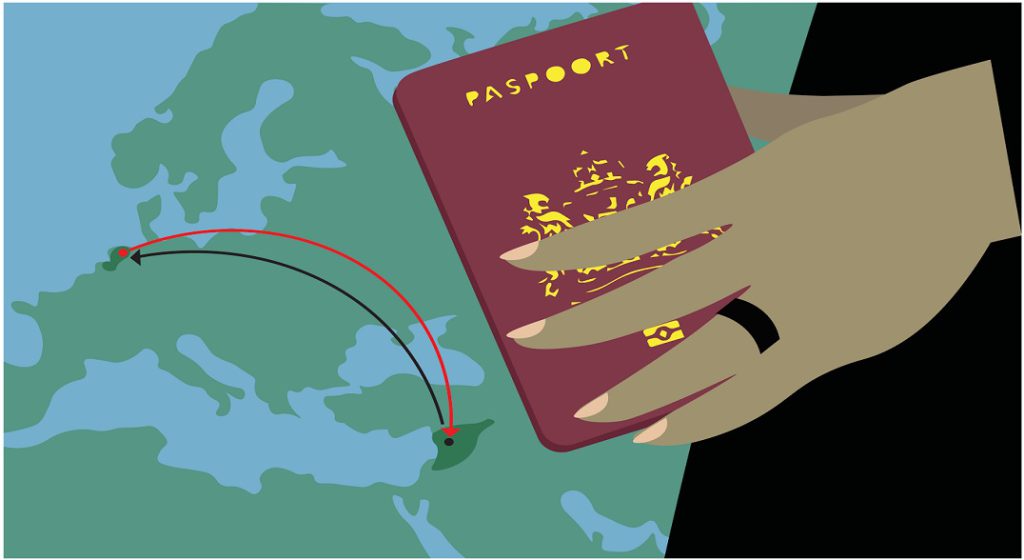
In August, a young mother named Laura Hansen, who is a convert to Islam and originally from the Netherlands, was detained by police upon her arrival in Amsterdam. She had recently fled Islamic State (IS) territory with the help of her father and Kurdish fighters. Her detention was extended for 90 days on suspicion of support for a terrorist group. She has claimed that her husband, a Palestinian-German man who is also a Muslim, had held her in Syria and then Iraq against her will and that all she had done was take care of her two children. The public prosecutor, however, fears that Hansen returned to the Netherlands to commit a terrorist attack, and she has now been charged with participating in a terrorist organization. The court recently ordered her to undergo a psychiatric evaluation before her trial.
In the Netherlands, where we live, concerns about women who have moved to IS territory in Syria and Iraq are elevated due to the threat that terrorists pose here and in the rest of Europe.
According to a recent report by the general intelligence and security service of the Netherlands (AIVD), around 70 Dutch women migrated to Syria between July 2012 and December 2015. Some of these women chose to live in territory held by Jabhat al-Nusra, which was an al-Qaida affiliate until July of this year when the group broke with al-Qaida and rebranded itself as Jabhat Fatah al-Sham. Others moved to territory controlled by al-Qaida in Iraq (AQI), which changed its name in April 2013 to the Islamic State in Iraq and Syria (ISIS) and then altered it again in June 2014 to the Islamic State.
These female migrants to Syria are often presented—and at times present themselves—either as naïve women who have been duped by male relatives or as willing participants in a terrorist movement. The AIVD report concluded that men and women who travel to IS territory are—regardless of the activities they participate in while there—“knowingly opting to join a terrorist group which regards all outsiders as infidels and uses excessive violence on a daily basis.” Our research shows more complex findings.
We cannot know for sure whether Hansen was tricked by her husband or not. But our research team can speak to some of the activities and motivations of 21 Dutch women who moved to Syria between early 2013 and late 2014. They chatted with us in online forums, as part of our recent anthropological study, about their marriages to European men who are fighting for IS. The majority of these women showed very little interest in getting involved in public activism, let alone its more militant or violent forms, and they did not present themselves as victims. Instead, their main concerns centered on domestic life and raising a family. They had opted to migrate to Syria because, as they said, they wanted “to live under Islamic rule” or “in an Islamic state where you can freely practice your religion.”
Syria is in the midst of a brutal civil war. In 2011, nonviolent protests erupted against unemployment, corruption, and state repression under President Bashar Assad. Ruthless state oppression turned these protests violent, leading to a civil war that has claimed between 250,000 and 470,000 lives. The conflict has become about more than Assad, as international groups have sided with various factions and religious militants have joined the fray. In 2014, ISIS violently seized large areas of territory in both Syria and Iraq, declared a caliphate (an Islamic state)—claiming they would build a state governed by Islamic law, or Sharia—and renamed themselves the Islamic State. IS has gained notoriety for, among other things, its displays of ruthless violence, its use of ethnic cleansing, and for keeping and selling Yazidi women as sex slaves. (The Yazidis are a long-persecuted religious minority based in northern Iraq.) The group has called upon Muslims around the world to pledge allegiance to its leader, Abu Bakr al-Baghdadi, and to migrate to IS-held territory.
Conducting anthropological fieldwork in IS-held territory is next to impossible. Most research on female European migrants to IS territory has relied on secondary sources or information posted to social media sites, which has included photos of fully covered women carrying Kalashnikov assault rifles. It has largely focused on the extent to which these women pose a security risk to Europeans. These studies are biased toward the more media-savvy, politically active women who are motivated to spread their message to the world at large. We wanted to do a different kind of study.
In 2014 and 2015, we contacted women from the Netherlands who had moved to Syria, and we arranged to chat with 21 of them privately online about their marriages. [1] [1] This research was funded by the European Research Council. (We knew some of the women from previous research we did with them when they still lived in the Netherlands, and this contingent helped us to expand our network of interviewees.) Most of them were in their early to mid-20s and were born Muslim. Many are Moroccan-Dutch (their parents migrated from Morocco to the Netherlands). But a little over a quarter were converts to Islam from a variety of religious and ethnic backgrounds. Ten women were willing to give us detailed information about how and whom they had married and what kind of regulations were imposed by IS on their marriages.
The women we chatted with regard themselves as muhajirat (female migrants) and refer to their move to Syria as a hijra (migration). This language indicates that they were eager to move—that they were not coerced into it. A number of them said it was hard to feel at home in the Netherlands since they wore covering styles of dress and refused to shake hands with men. Some mentioned that they wanted to help their fellow Muslims who were victims of the Assad regime. But their main motivation was that they wanted to live under Islamic rule. After the caliphate was proclaimed in 2014, many considered it their duty to “perform hijra” to IS-held territory. Although IS does allow women to actively participate in state building, including military roles, the women in our research did not present themselves as staunch activists or recruiters for IS. Rather, they were by and large preoccupied with family life—caring for their husbands (who were fighting for IS most of the time) and children.
Motherhood in this context might be considered a political act, with the purpose of raising children to be future fighters. But our interviewees did not frame their domestic activities as part of the world of politics. Many did not even speak Arabic and had limited contact with the local population. Instead, they primarily engaged with fellow Muslims who had also recently come from Europe. As one of the women stated, “I spend my time at home with the children and visiting sisters. There is a school for sisters, but I know almost no Arabic, so I wouldn’t understand much.” (“Sisters” in this context means other Muslim women.) Some stayed in contact with their families back home, sharing stories and advice about cooking, health, and child care.
Only one woman in our study could be considered a strongly motivated activist in the sense of actively and purposefully participating in IS’ state-building efforts. She had moved to Syria in spring 2013 and had been active in the Al-Khansaa brigade, the all-female police force responsible for surveilling women’s adherence to IS rules, such as dress codes. She, like us, noticed that the women who came to Syria later, after the declaration of the caliphate, were particularly motivated by the possibility of living under Islamic rule rather than by joining the political movement. “I also notice the difference between me and the newly arriving sisters,” she said. “I came here to work for the jihad and the new ones are here to live under the Sharia.”
Marriage is, for these women, an integral part of living under Sharia. About a third of the interviewees were already married to Muslim men from Europe when the women left for Syria. For the others, finding a marital partner was a priority, both for religious and pragmatic reasons, and they too married European male fighters after they arrived in Syria. “It is difficult if you are by yourself [without a husband] while a jihad is going on,” one of the women explained.
The stories of some of the women we chatted with online show that their pursuit of a marriage became highly regulated after the caliphate was declared. Under IS rule, restrictions on premarital contacts were imposed and rules about who can function as a wali (a woman’s marriage guardian) became more strictly enforced. In addition, IS men need the permission of their commander to marry. Marriages have to be concluded and registered at the Sharia courts or at home in the presence of an IS official who is responsible for registering the marriage contracts. The Islamic State is also attempting to enforce a minimum amount of dower (the gift from a husband to his wife) of about US$500—to make marriage a more serious commitment and to protect women from men who might only want to marry them because they ask for so little.
It is, of course, hard to know if these women were being entirely honest with us about their activities and motivations. But we do know that they weren’t simply feeding us official IS policy or propaganda because they admitted some mild transgressions in their marriages. Some, for example, told us they met the man they were going to marry, without supervision, before their marriage ceremony, which is against the strict rules of the caliphate.
Living a so-called normal family life became increasingly difficult for these women when, in autumn 2014, a coalition of countries (including the United States and Middle Eastern nations such as Saudi Arabia) started airstrikes against IS. Communication with us in Europe via social media and mobile phone has become very challenging, and, since July 2015, IS has only allowed internet access through regulated internet cafes. This has also made it problematic for us to follow up with our interviewees.
Some analyses, such as the 2015 report by the International Centre for the Study of Radicalisation and Political Violence on male IS defectors show that many of these men are disappointed with the infighting among rebels and the brutality and corruption of IS. Since we cannot easily or often contact our interviewees, we do not know whether they share a similar disillusionment. We do know, however, from the communication that we have managed with them, that more than half of them have become widowed over the last couple of years. It is likely that many of our interlocutors will remarry, perhaps as a second wife, as they are generally not opposed to polygamy, and it is difficult to remain without a husband for long.
It is not just the ongoing war that makes life perilous for these women. If they do decide to return home, that choice will prove difficult for them. The IS does not like to let people go, and also, as Hansen’s story shows, Dutch public prosecutors tend to consider anyone who migrated to IS territories after the proclamation of the caliphate a terrorist.
Throughout Europe, people are concerned about terrorists infiltrating the mass of Syrian refugees crossing their borders; suspicions about people who willingly moved to Syria after the war began are even greater. Our small study can’t tell us about all female migrants in IS territory. But the stories the women told us do show that the victim-or-terrorist trope is too simplistic and that the recent turn in Dutch state policy to define all migrants, including women, as terrorists, irrespective of their intentions and actions, makes these women’s lives even more precarious.























